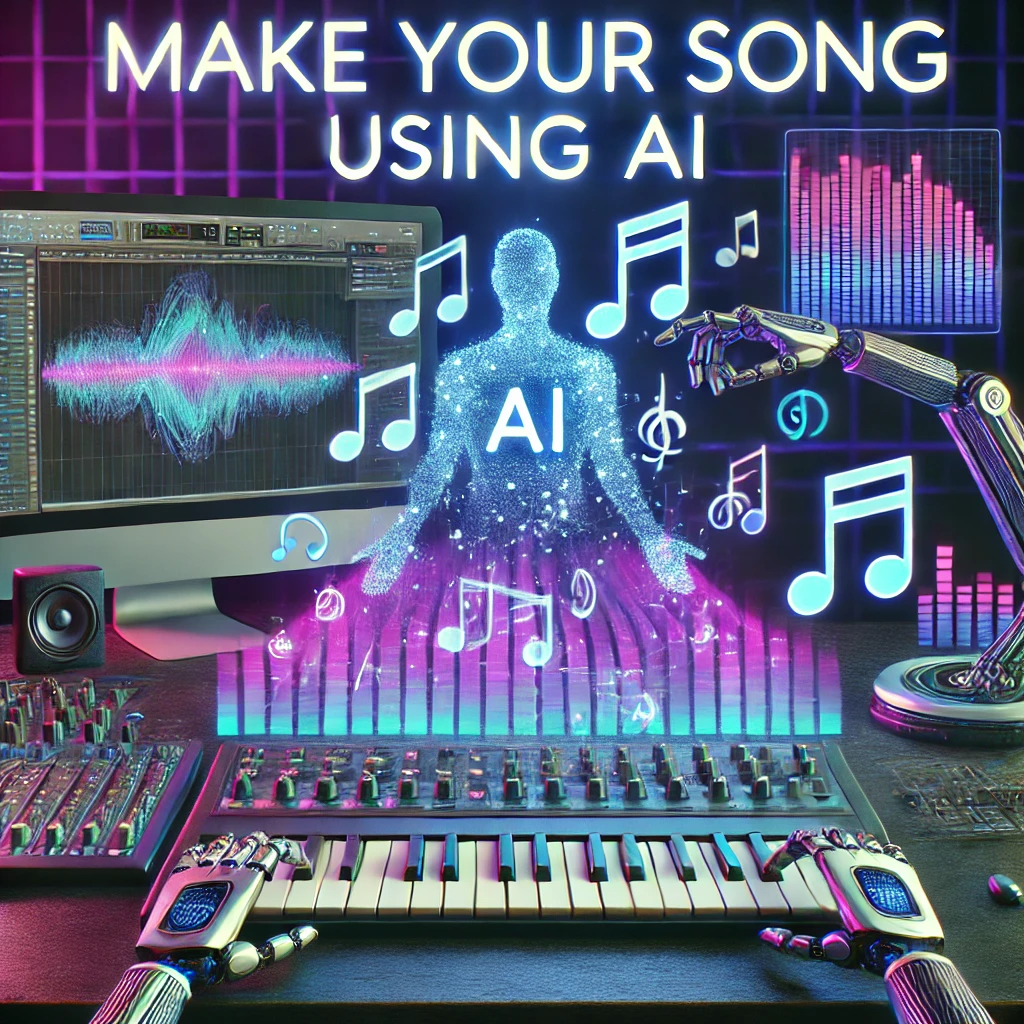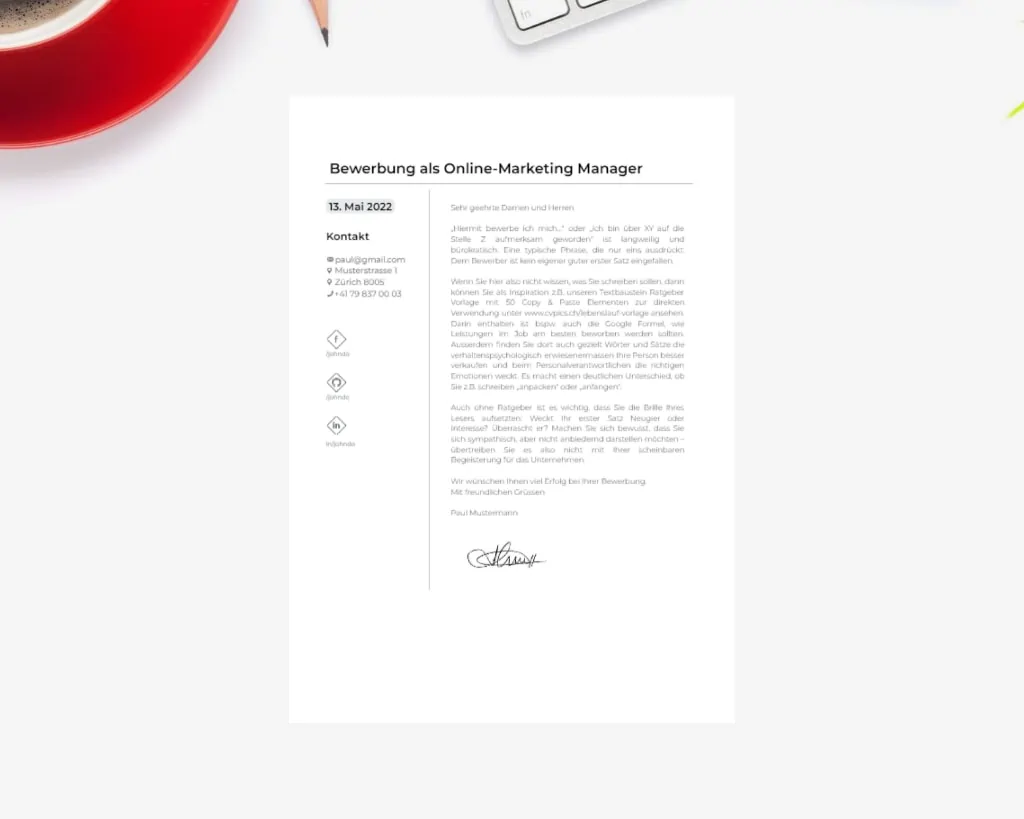In the ever-evolving world of music production, AI tools have opened new doors for both seasoned musicians and beginners. These tools allow you to create, compose, and edit music with minimal effort, making high-quality music production accessible to everyone. This blog explores ten of the best AI tools to make your song using AI, highlighting their advantages, disadvantages, and my personal insights as a music enthusiast and content creator. Whether you’re looking to compose a full orchestral piece or just need a catchy background track, these tools can help you bring your musical ideas to life. Check the tools out and get AI to make your song.
My Top 3 Picks for AI Music Generation Tools
As I explored various AI tools, three stood out to me for their impressive features, ease of use, and the quality of the music they produce. Here’s why they’re my favorites:
1. Soundful
Soundful impressed me with its user-friendly interface and the variety of high-quality, royalty-free music templates it offers. Whether you’re a content creator or a brand looking for the perfect soundtrack, Soundful makes it easy to create music that fits your needs.
2. AIVA
AIVA stands out for its ability to create complex, orchestral compositions. It’s a powerful tool for those who want to explore classical music creation without needing deep musical expertise. AIVA’s presets and customization options provide a lot of creative freedom.
3. Mubert
Mubert is my go-to for real-time music generation. Its ability to adapt and create music on the fly makes it ideal for live streams or apps. The sheer variety of sounds and the quality of the compositions make it a must-have tool for any music producer.
The Top 10 AI Tools to Make Your Song Using AI
Now, let’s dive into the full list of tools that can help you create your next musical masterpiece.
1. Soundful
Soundful is an AI-driven platform that allows users to generate royalty-free music by selecting from over 50 customizable templates. It’s designed to be accessible to everyone, whether you’re a beginner or a professional. The platform’s intuitive design makes it easy to create tracks for various purposes, such as videos, podcasts, or social media content.
Advantages:
- User-friendly interface: Easy to navigate, even for beginners.
- High-quality output: Produces studio-grade music.
- Versatile: Suitable for different types of users, from content creators to brands.
Disadvantages:
- Limited genre variation: While versatile, it may not cover niche genres as effectively.
- Basic free version: Advanced features are locked behind a paywall.

2. AIVA
AIVA (Artificial Intelligence Virtual Artist) is an AI composer that specializes in creating soundtracks and classical music. It’s particularly useful for composers who want to produce high-quality orchestral pieces. AIVA offers a range of presets, making it easy to compose music in various styles and genres.
Advantages:
- Advanced composition capabilities: Ideal for complex music creation.
- Customizable presets: Offers a wide range of styles and genres.
- Free version available: Provides enough features for beginners to get started.
Disadvantages:
- Learning curve: Requires some musical knowledge to make the most of its features.
- Limited editing options in free version: You may need to upgrade to access full functionality.
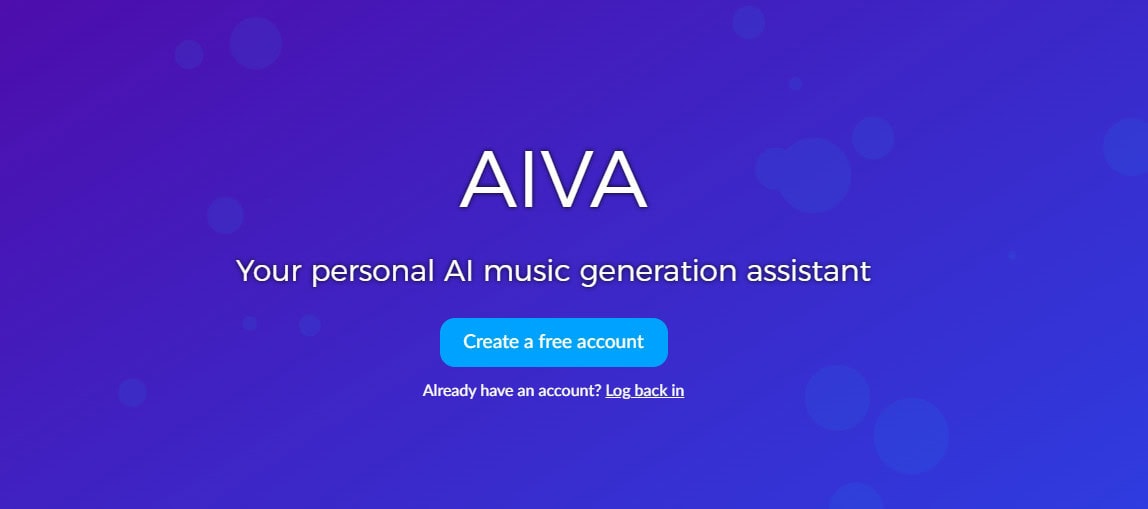
3. Mubert
Mubert is a real-time music generator that creates adaptive music based on user preferences. It’s ideal for live streams, apps, and other situations where you need continuous, dynamic music. Mubert offers a wide variety of genres and moods, making it highly versatile.
Advantages:
- Real-time music generation: Perfect for live or dynamic environments.
- Diverse sound library: Wide range of genres and moods.
- Flexible: Can be used in various applications, from streaming to app integration.
Disadvantages:
- Repetitive patterns: Some users report that the music can sound repetitive over time.
- Higher learning curve: Requires some time to master the tool’s features.
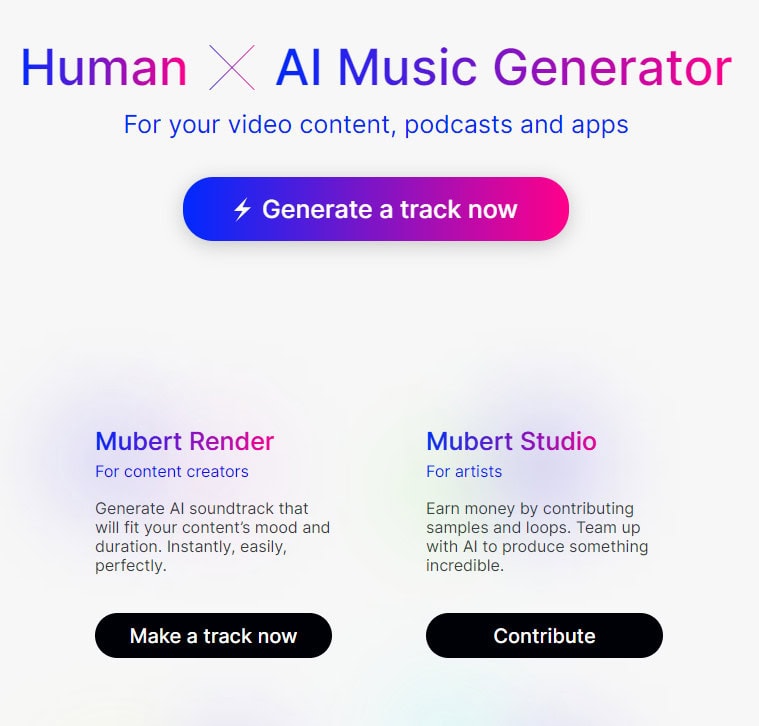
4. Beatoven.ai
Beatoven.ai allows users to create customizable, royalty-free music based on mood and genre. It’s designed with content creators in mind, offering a simple interface to compose tracks that match the emotional tone of your project.
Advantages:
- Customizable music: Allows for precise control over the mood and genre.
- Free plan available: A great option for individuals and small projects.
- User-friendly: Easy to navigate, even for those with no musical background.
Disadvantages:
- Limited downloads in free plan: Full access requires a subscription.
- Subscription-based pricing: May not be suitable for everyone.
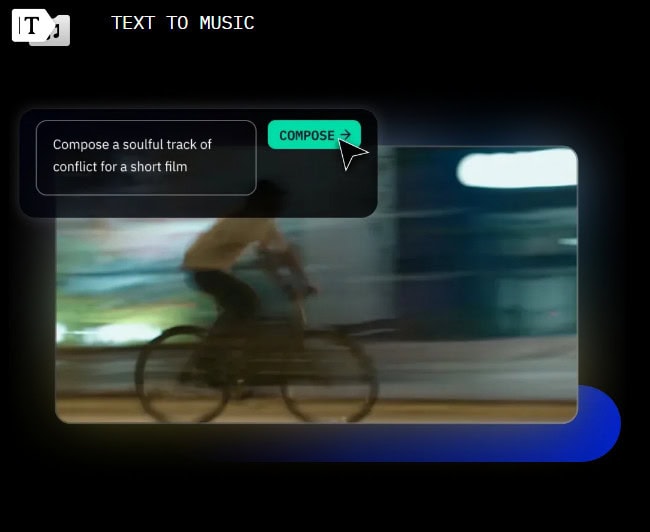
5. Soundraw
Soundraw is an AI music composition tool that allows users to mix and match different genres, moods, and instruments to create unique tracks. It’s particularly useful for commercial projects, offering affordable pricing for royalty-free music.
Advantages:
- Highly customizable: Offers extensive options for personalizing your music.
- Affordable pricing: Reasonable subscription plans for commercial use.
- Easy to use: Intuitive interface that simplifies the music creation process.
Disadvantages:
- Limited genre variation: Some users may find the genre selection a bit narrow.
- Repetitive tracks: The music can sometimes sound similar across different compositions.
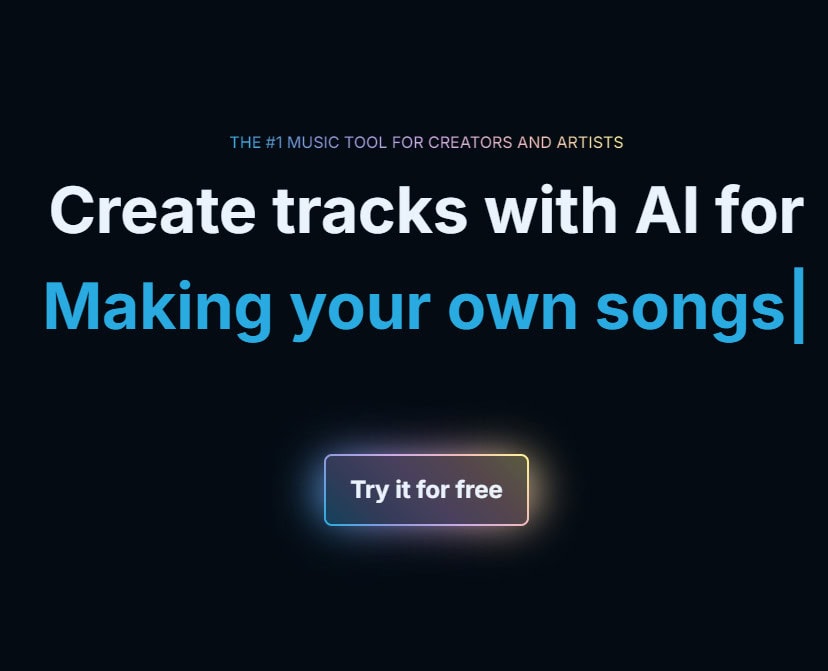
6. Boomy
Boomy is an AI-powered music generator that allows anyone to create original music, regardless of their musical background. The platform is particularly user-friendly, guiding you step-by-step through the music creation process.
Advantages:
- User-friendly interface: Perfect for beginners.
- Direct publishing: Allows users to submit tracks to major music platforms.
- Free plan available: Ideal for those just starting out.
Disadvantages:
- Limited genre diversity: The available genres may not cover all musical tastes.
- Copyright issues: Boomy retains the rights to the music, which might be a drawback for some users.
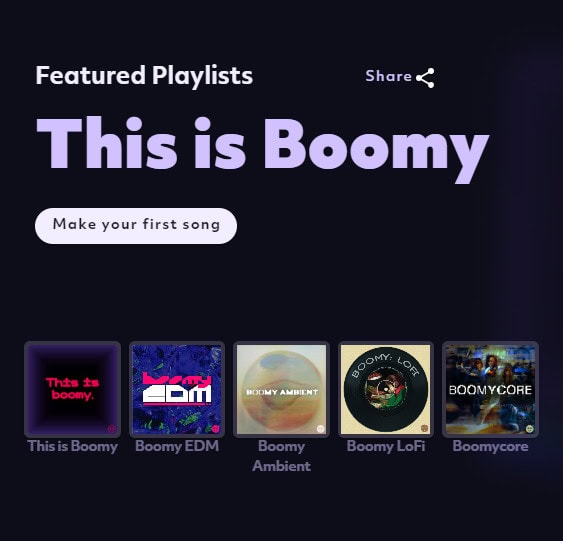
7. Ecrett Music
Ecrett Music is a straightforward AI tool designed for video creators who need background music. It’s simple to use, with a focus on creating music that fits the mood and tone of your video projects.
Advantages:
- Simple interface: Easy to use, even for beginners.
- Focused on video content: Tailored for video creators.
- Pre-set genres and moods: Quick and easy music creation.
Disadvantages:
- Limited to non-commercial use in the free plan: Full access requires a subscription.
- Less flexibility: Not as customizable as some other tools.
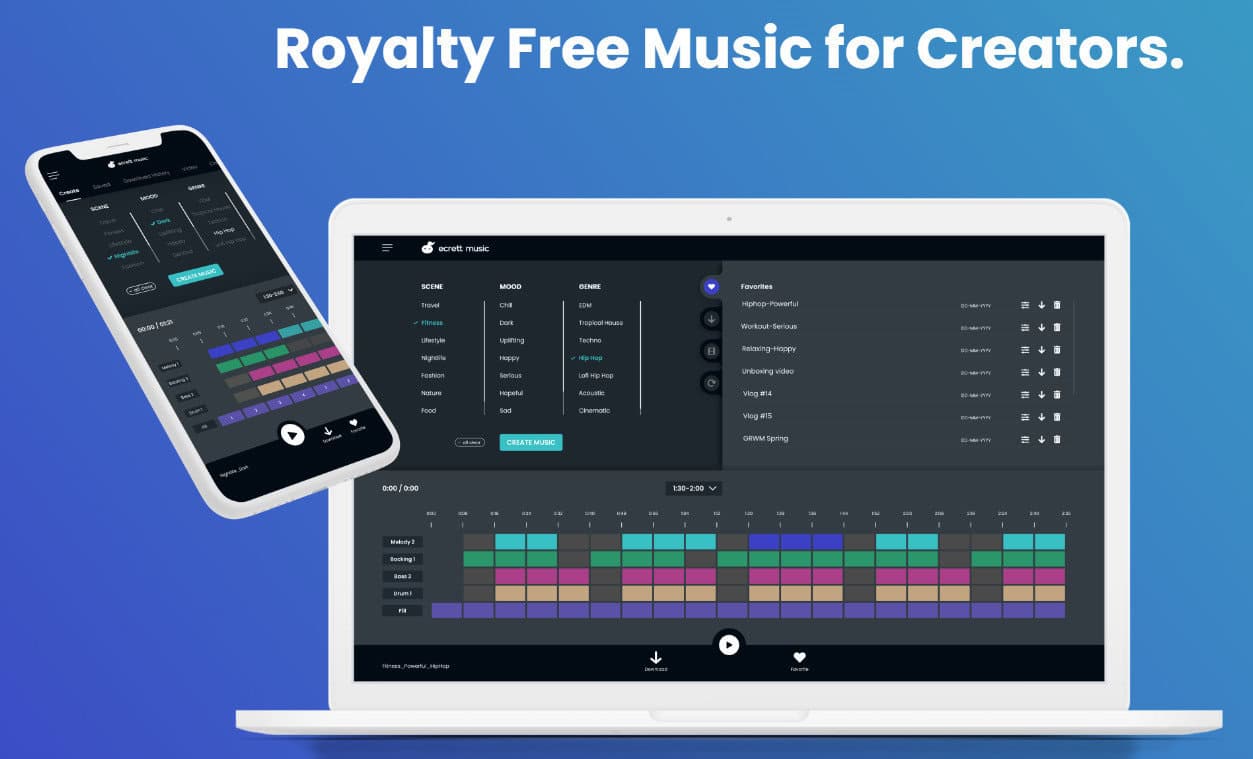
8. Loudly
Loudly is an AI music generator that allows users to create and customize music tracks quickly. It’s designed to generate studio-quality music and is particularly suited for commercial use, thanks to its royalty-free policy.
Advantages:
- Quick music generation: Produces high-quality tracks in seconds.
- Customizable: Allows for a high degree of personalization.
- Royalty-free: Suitable for commercial projects.
Disadvantages:
- Limited free plan: Advanced features require a paid subscription.
- Overwhelming for beginners: The range of options might be too much for new users.
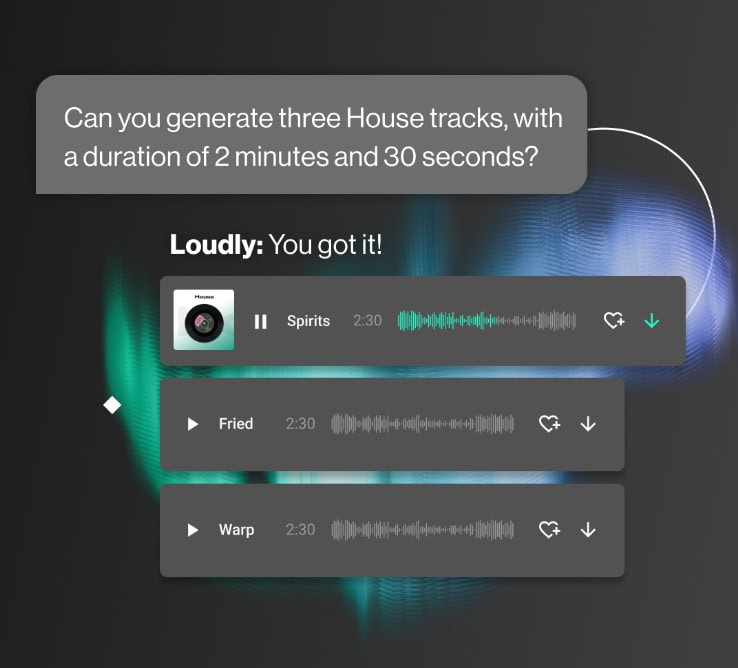
My Opinion:
Loudly is ideal for professionals who need quick, high-quality music. I’ve found it particularly useful for commercial projects where time is of the essence, and the need for customizable, royalty-free tracks is crucial. However, beginners might find the multitude of options a bit overwhelming at first.
9. Splash Pro
Splash Pro is an AI music tool designed for content creators who need a fast and effective way to produce music. One of its standout features is the text-to-vocals capability, which allows users to add custom vocals without the need for a professional singer.
Advantages:
- Text-to-vocals feature: Allows for the creation of songs with custom vocals.
- Affordable pricing: Reasonable subscription rates for commercial use.
- User-friendly: Simplified interface, perfect for content creators.
Disadvantages:
- Music quality: Some users report that the AI-generated music lacks depth compared to human-produced tracks.
- Limited genre options: The available genres might not satisfy all musical tastes.
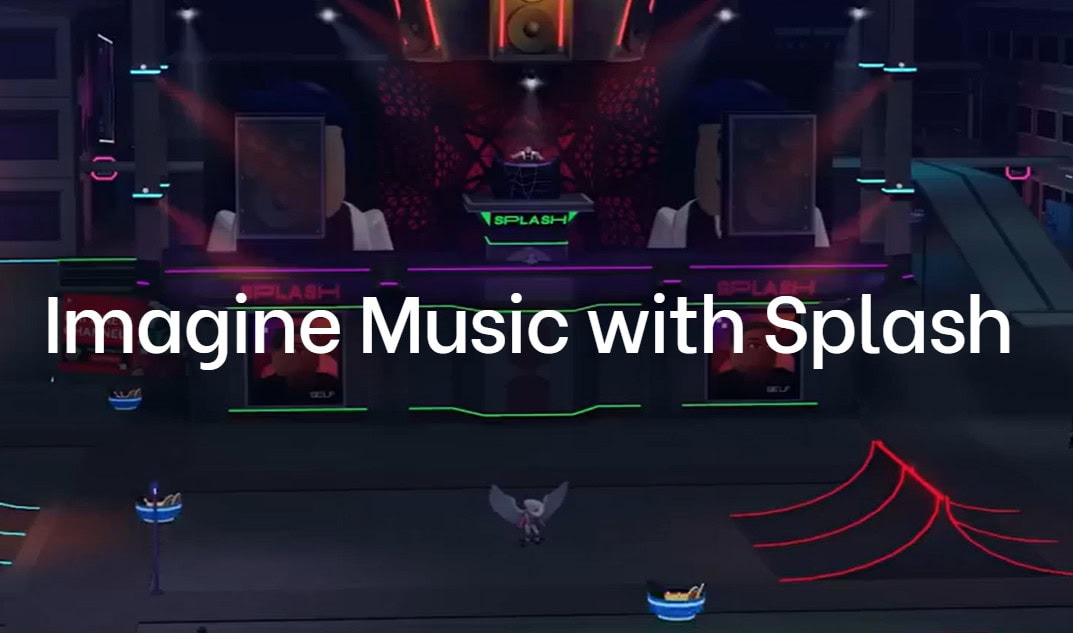
10. Udio
Udio is an innovative AI music generator developed by a team of former Google DeepMind researchers. It stands out for its ability to transform text descriptions into full music tracks, making it accessible to users without any musical training.
Advantages:
- No musical training required: Designed for non-musicians, making music creation accessible to all.
- High-quality output: Produces sophisticated, professional-grade music.
- Democratizes music creation: Allows anyone to create music with just a text prompt.
Disadvantages:
- New to the market: Still in the early stages of development, which might mean fewer features and resources.
- Limited support: Smaller user base and fewer community resources compared to more established tools.
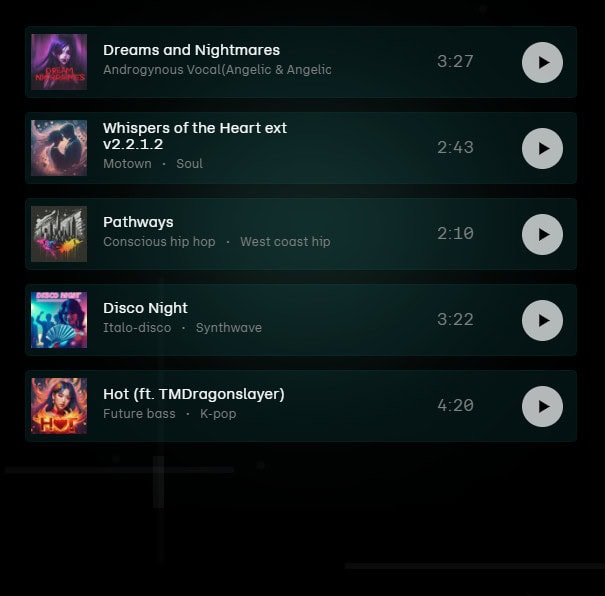
My Opinion:
Udio represents the future of AI-driven music creation, especially for those who don’t have a musical background. I’ve enjoyed experimenting with it, and the results are surprisingly polished for a tool still in its early stages. It’s definitely worth trying if you’re curious about the possibilities of AI in music.


